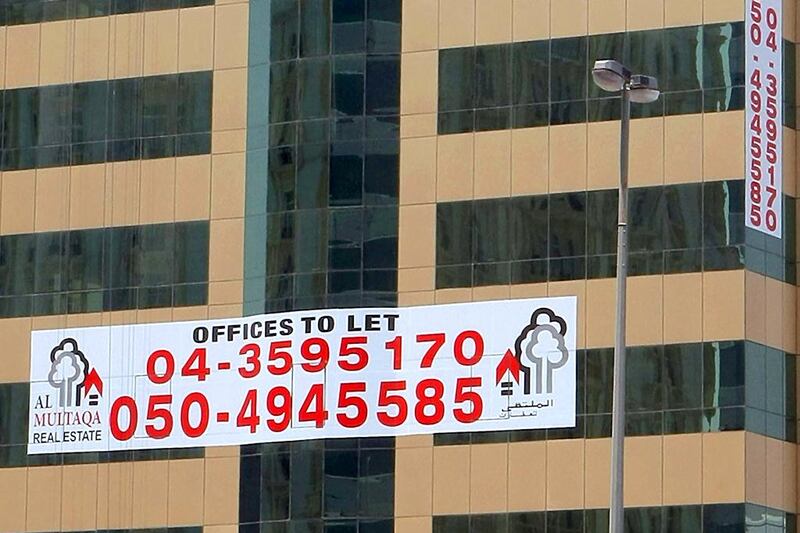The low oil price, cuts in government spending and a global economic slowdown are dampening global companies’ appetite for large offices in Dubai as some occupants are forced to cut staff numbers and consolidate offices.
According to JLL’s latest report, demand in Dubai for offices of more than 10,000 square feet plunged in the third quarter of this year compared with a year earlier, prompting some landlords to reconfigure space into smaller units.
It said that fewer than 12 per cent of all office deals signed in Dubai during the first nine months of this year were for lettings of more than 10,000 sq ft, compared with 30 per cent the previous year.
JLL said that the average amount of office space leased in Dubai had fallen in the first nine months of this year to 5,900 sq ft from an average of 14,500 sq ft for the whole of last year as occupiers with larger space requirements had shied away from committing to new deals.
It said that the lack of large office requirements had already prompted two of the city’s highest profile landlords, Emirates Reit and Emirates Real Estate Fund, to configure parts of their portfolios into smaller units of less than 3,000 sq ft.
“This reflects occupiers’ caution in the face of more challenging economic conditions in both Dubai and across the broader region,” said Craig Plumb, the head of research in JLL’s Dubai office.
“While there remains strong demand for smaller units, it is taking far longer to negotiate larger deals as companies remain uncertain about their staffing and space requirements.”
JLL pointed to Emirates Reit’s decision to divide four floors of its Index Tower in DIFC into fully fitted, ready to lease office suites of between 50 sq metres (538 sq ft) and 300 sq metres, most of which are now leased.
Emirates NBD, which owns three floors in Burj Daman in the DIFC through its Emirates Real Estate Fund, is pursuing a similar strategy, offering units of between 2,500 and 3,000 sq ft.
“It is true to say that there are fewer of these 10,000 sq ft office requirements than there were a year or two ago because companies in the oil and gas sector, banking and finance and real estate and construction are feeling pressure to make savings,” said Paula Walshe, the director for corporate international services at Cluttons.
“But we are still seeing companies in other sectors such as pharmaceuticals, technology and law expanding in Dubai,” she said. Economic sentiment in the UAE has been somewhat dampened this year as the low oil price and strong US dollar have combined with global economic uncertainty to worry business leaders.
The UAE purchasing managers’ index (PMI), which covers manufacturing and services, has averaged just 53.8 so far this year compared with 56.0 last year and 58.1 in 2014.
A figure above 50 means businesses in the country are expanding, while below 50 signals a contraction.
lbarnard@thenational.ae
Follow The National's Business section on Twitter






